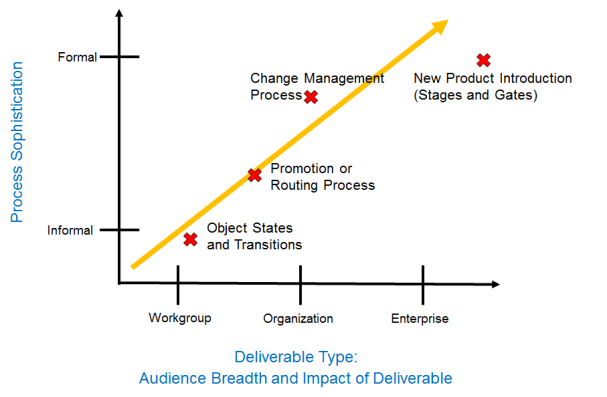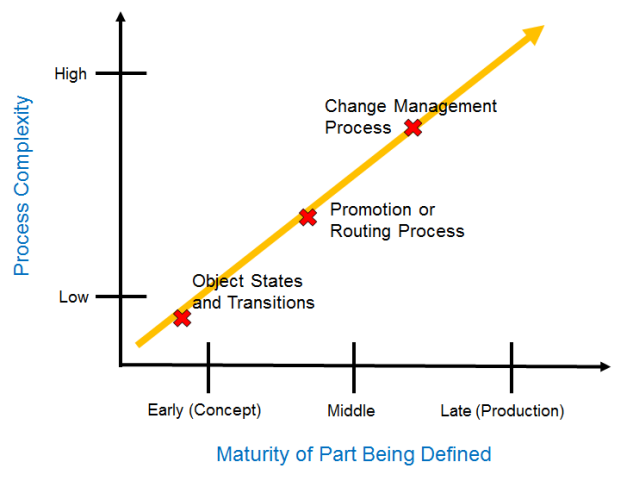Life Cycle Planning
Depending on several business environment considerations (impact of change, development team, maturity of object, type of object, and so forth), it is important to tailor the life cycle to include certain business operations and to define how these operations are executed.
For example, a development team in the automotive division of a company has a different review processes than the industrial products division. The automotive division requires that a prototype is created for a new product before the first production versions are released. Formal change processes are required to update these prototype designs. After a part has been initially released to production, new versions of the design are designated as “Production Change,” and they must undergo a formal change process.
The following figure is an example of the variety of business processes that can be used with a Windchill system to mature different types of product development deliverables. The development team processes for the review and release of a design specification can differ from those required for the release of a new configuration of the product.
The next figure illustrates a case when a combination of the business processes is required for some product development deliverable objects, such as parts, as they move from a concept, through prototypes, and into production.


